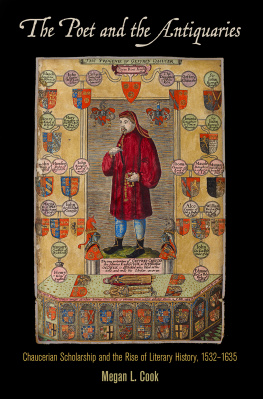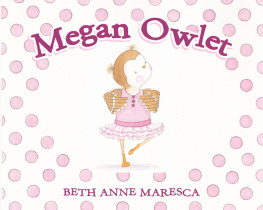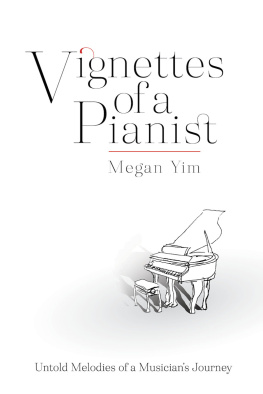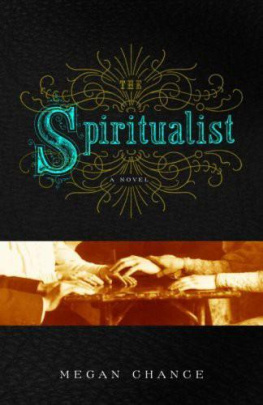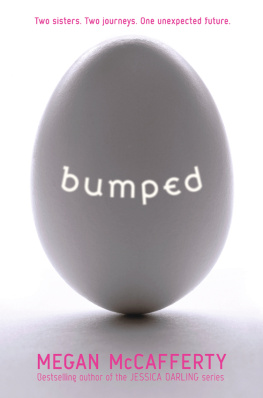Cook Megan L. - The Poet and the Antiquaries
Here you can read online Cook Megan L. - The Poet and the Antiquaries full text of the book (entire story) in english for free. Download pdf and epub, get meaning, cover and reviews about this ebook. year: 2019, publisher: University of Pennsylvania Press, genre: Home and family. Description of the work, (preface) as well as reviews are available. Best literature library LitArk.com created for fans of good reading and offers a wide selection of genres:
Romance novel
Science fiction
Adventure
Detective
Science
History
Home and family
Prose
Art
Politics
Computer
Non-fiction
Religion
Business
Children
Humor
Choose a favorite category and find really read worthwhile books. Enjoy immersion in the world of imagination, feel the emotions of the characters or learn something new for yourself, make an fascinating discovery.
- Book:The Poet and the Antiquaries
- Author:
- Publisher:University of Pennsylvania Press
- Genre:
- Year:2019
- Rating:5 / 5
- Favourites:Add to favourites
- Your mark:
- 100
- 1
- 2
- 3
- 4
- 5
The Poet and the Antiquaries: summary, description and annotation
We offer to read an annotation, description, summary or preface (depends on what the author of the book "The Poet and the Antiquaries" wrote himself). If you haven't found the necessary information about the book — write in the comments, we will try to find it.
The Poet and the Antiquaries — read online for free the complete book (whole text) full work
Below is the text of the book, divided by pages. System saving the place of the last page read, allows you to conveniently read the book "The Poet and the Antiquaries" online for free, without having to search again every time where you left off. Put a bookmark, and you can go to the page where you finished reading at any time.
Font size:
Interval:
Bookmark:

THE POET AND THE ANTIQUARIES
THE POET AND THE ANTIQUARIES

Chaucerian Scholarship and the Rise of Literary History, 15321635
Megan L. Cook

UNIVERSITY OF PENNSYLVANIA PRESS
PHILADELPHIA
PUBLISHED IN COOPERATION WITH FOLGER SHAKESPEARE LIBRARY
Copyright 2019 University of Pennsylvania Press
All rights reserved. Except for brief quotations used for purposes of review or scholarly citation, none of this book may be reproduced in any form by any means without written permission from the publisher.
Published by
University of Pennsylvania Press
Philadelphia, Pennsylvania 19104-4112
www.upenn.edu/pennpress
Printed in the United States of America on acid-free paper
10987654321
Library of Congress Cataloging-in-Publication Data
Names: Cook, Megan L. (Megan Leigh), 1981 author.
Title: The poet and the antiquaries : Chaucerian scholarship and the rise of literary history, 15321635 / Megan L. Cook.
Description: 1st edition. | Philadelphia : University of Pennsylvania Press, [2019] | Published in cooperation with Folger Shakespeare Library. | Includes bibliographical references and index.
Identifiers: LCCN 2018051760 | ISBN 9780812250824 (hardcover)
Subjects: LCSH: Chaucer, Geoffrey, 1400Criticism and interpretationHistory. | Chaucer, Geoffrey, 1400Influence. | English literatureEarly modern, 15001700History and criticism. | AntiquariansEnglandHistory16th century. | AntiquariansEnglandHistory17th century. | MedievalismEnglandHistory16th century. | MedievalismEnglandHistory17th century. | Civilization, Medieval, in literature.
Classification: LCC PR1924 .C594 2019 | DDC 821/.1dc23
LC record available at https://lccn.loc.gov/2018051760
For Linda Cook-Toren and Ruth Ann VanZanten
CONTENTS

A NOTE ON SPELLING AND PUNCTUATION

Throughout, I have silently expanded abbreviations and regularized i/j and u/v spellings. Punctuation from the original sources is maintained.
INTRODUCTION

Only by Thy Books
Knowing Chaucer in Early Modern England
In 1598, one H.B. contributed a curious prefatory poem to a new edition of Chaucers collected works. Produced under the auspices of the schoolteacher Thomas Speght, The workes of our Antient and Learned English poet, Geffrey Chaucer distinguished itself from previous collections by the great deal of supplementary material it added to Chaucers poems. Perhaps most notable is an extensive glossary, the first large-scale lexicon of Middle English in print. The significance of Speghts additions is not lost on H.B., whose poem stages the following dialogue between Chaucer and a latter-day reader. It begins:
Reader.
Where hast thou dwelt, good Geffrey, all this while,
Unknowne to us, save only by thy bookes?
Chaucer.
In haulks and hernes, God wot, and in Exile,
Where none vouchsaft to yeeld me words or lookes:
Till one which saw me there, and knew my Friends,
Did bring me forth: such grace sometime God sends:
Reader.
But who is he that hath thy Books repard,
And added more, whereby thou art more graced?
Chaucer.
The self same man who hath no labor spard,
To helpe what time and writers had defaced:
And made old words, which were unknown of many,
So plaine, that now they may be known of any.
This exchange encapsulates the way that many early modern readers must have seen themselves in relation to Chaucer. The Reader is solicitous and polite, even delighted, but interested less in Chaucers stories than in the authorial persona revealed through them. Chaucers archaic dictionthe alliterative haulks (nooks) and hernes (crannies) and God wot (God knows)marks him as temporally distant from the reader, and he seems grateful for his interlocutors attentions, which are described as a kind of divine intervention (such grace).
What differentiates this piece from earlier poems celebrating the affective bond between Chaucer and his readers (my friends) is the prominence of the editorial figure who mediates their relationship. This is not really a poem in praise of Chaucer at all, but a panegyric to Speght. Chaucer is unknown and in exile prior to Speghts efforts; editorial intervention and the consequent improvement of the text bring forth Chaucer to his proper place, where he can express his thanks to the man who hath no labor spard / To helpe what time and writers had defaced. In this poem, as Stephanie Trigg writes, author, editor, and reader are apparently bound together in ties of love and mutual obligation, of mutually flattering recognition and knowledge, but without Speghts antiquarian interventions, the connection between the reader and the author would dissolve.
By foregrounding Speghts involvement, H.B.s poem emphasizes an aspect of Renaissance encounters with Chaucerand with Middle English writing more generallywhich often passes unmarked in discussions of early modern uses of the medieval, and which this book seeks to illuminate. This is the vital role that early modern scholarly intermediaries played in shaping later readers understanding of Chaucer and his contemporaries, whether through their involvement in printed editions of Middle English texts, their role in forming collections of medieval books and documents, or in their generically varied writings about the English past, which range from handbooks of rhetoric to discourses on religious history. Through these activities, antiquarians played a key role not only in the construction and dissemination of broad narratives about the English past, but also in some of the earliest articulations
The story of how Chaucers work came to occupy an exceptional place in English literary history offers revealing insight into the ways texts and authors acquire political, historical, and social meaning far beyond that which might have adhered to them at the moment of composition. Though large and necessarily costly, the collected works seem to have become the preferred or at least expected vehicle for Chaucer in print, judging by the fact that no shorter or smaller printed volumes of Chaucer appeared in this period. Both in their length (eventually more than four hundred pages) and their impressive folio size, these are the largest collections of poetry printed in England during this period. All were produced with substantial involvement of individuals connected with antiquarian communities, and all bear evidence of the scholarly habits and intellectual investments characteristic of those communities.
Antiquarians, in other words, were largely responsible for the kind of work that enables the reader and Chaucer to reunite in H.B.s poem. By reading the archive of Chaucers reception in a way that foregrounds this work, this book seeks a fuller understanding of the ways that Chaucer and his writings were read and transmitted in early modern England. Antiquarian material makes profoundly visible the fact that Chauceralready widely known to English readersfunctioned in a wide range of historical discourses in this period, some concerned with his literary merits but many more simply eager to leverage his preexisting fame. This fame, and Chaucers ability to signify venerability and Englishness in so many different contexts, made him a prime site at which to link a nascent concept of vernacular literary history with ideas about national and linguistic identity both past and present.
Next pageFont size:
Interval:
Bookmark:
Similar books «The Poet and the Antiquaries»
Look at similar books to The Poet and the Antiquaries. We have selected literature similar in name and meaning in the hope of providing readers with more options to find new, interesting, not yet read works.
Discussion, reviews of the book The Poet and the Antiquaries and just readers' own opinions. Leave your comments, write what you think about the work, its meaning or the main characters. Specify what exactly you liked and what you didn't like, and why you think so.

